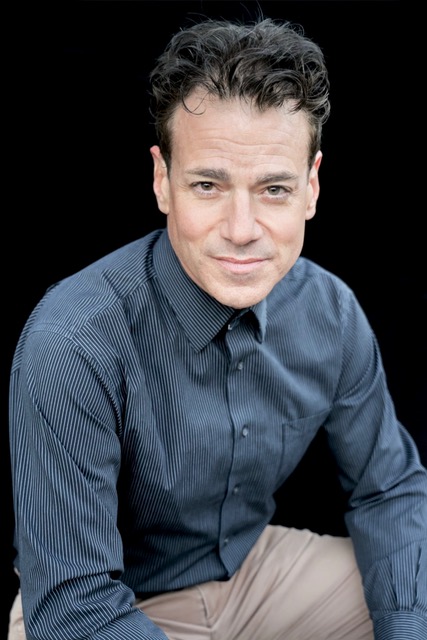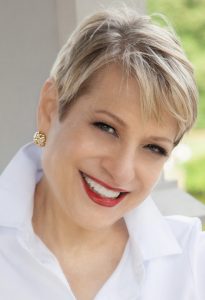Bistro Bits: Summertime Cabaret: Looking Back, Looking Bacharach, Looking Forward
Like a good many things, cabaret action slows somewhat during the summer months, though it certainly doesn’t shut down entirely. There have been plenty of club shows playing in the early summer weeks to keep an avid cabaret goer occumpied Unfortunately, the imminent closing of the Laurie Beechman Theatre has been the biggest news story of the season. Hope remains that crowdfunding efforts will turn that around, though doing so will likely be a major challenge.
Meanwhile, here’s my coverage of three recent shows. The first—going way back to late May— was an encore of a comeback show from a cabaret veteran. The second was a tribute show celebrating a legendary pop-music composer, and the third an installment of a continuing series that gives audiences an early look at cabaret works in progress.
Looking Back: Craig Rubano
In the past several months, Craig Rubano has performed—at the Laurie Beechman—his first NYC cabaret show in a decade or so. I was lucky enough to see a late-spring performance by this amiable fellow with a powerhouse theatrical voice: an instrument fortified early in his career with a long stint playing Marius in Broadway’s Les Misérables. (He also had a Broadway stint in The Scarlet Pimpernel.)
Rubano’s show, Take the Moment, was a skillfully assembled autobiographical piece, directed by Jeff Harnar (who’s been having a very busy and successful year so far, both in the singing and directing departments). Early on in the show, Rubano told his listeners that he has come to associate certain songs with important moments (both good and bad) in his life. By centering on these moments, and songs, he found a simple, straightforward, and fuss-free way to put together a setlist. And Rubano succeeded roundly with this show.
He came to the stage with a snippet of Rodgers/Sondheim’s “Take the Moment” (originally heard in Do I Hear a Waltz?), segueing into Cole Porter’s “Where Have You Been?” (performed in a seductive manner, with some sly, come-hither looks). The power of his vocal instrument and his ability to make every word clear were evident right from the start. “Everything Must Change” (Bernard Ighner) helped set up the thematic thrust of the show, reminding us that the “remembered moments” that stick with us can come to be treated as touchstones in an ever-shifting life’s journey.
Then, Rubano zoomed back to an early key moment, when his younger self enjoyed an extended, life-altering “South American adventure” in a school filled with diverse international students. One of the singer’s first recalled theatrical moments from his youth was a performance he attended of the musical Man of La Mancha, sung in Spanish. He revisited this moment by delivering a robust version of Mitch Leigh and Joe Darion’s “The Impossible Dream (The Quest),” fluctuating between Spanish and English lyrics. He next told of coming back to the states and choosing, unexpectedly, to study Humanities (a decision represented musically with Sondheim’s “Everybody Says Don’t”— featuring a gruffly repeated, almost barked “don’t”).
Other memorable moments included the day Rubano was first cast in Les Mis, a 9/11 epiphany, his transition to country living, his career shift to Unitarian Universalist ministerial work, a near-death experience in a horrific traffic accident, and the night he found true love right there at the Laurie Beechman.
Throughout the evening, there was a lot of bold, rafters-shaking singing—including one of the most moving and effective versions of Jerry Herman’s “I Am What I Am” that I’ve heard. His is a voice probably more suited for a concert hall than a cabaret room (it’s wise, I think, that he chose to perform in the relatively commodious Beechman, rather than at Pangea or in the Brick Room of Don’t Tell Mama). He does have some quieter moments—once in a while—though hushing those vocal cords may be akin to muffling thunder. But does that really matter? His concentration is so good—and his autobiographical patter so vivid, witty, and natural—that he qualifies in my book as a bona fide cabaret guy. (Still, for kicks, next time out, I hope he experiments by giving us the quietest of whispery, intimate sambas, accompanied by a mellow guitar and nothing more.)
Rubano’s musical director and pianist is the talented and quietly exuberent Beth Ertz. In the show that I attended, bass player Jeffrey Carney also played, though in other performances, that role was undertaken by Marc Schmied. (Attended May 17 show.)
Looking Bacharach: Allyson Briggs
In a Variety article published shortly after Burt Bacharach’s death in 2023, Dionne Warwick—the preeminent interpreter of Bacharach’s songs with Hal David—was commended for her “arch, crisp” delivery of the songwriting team’s material.
I wish that I could similarly praise Allyson Briggs, who recently sang the content of her new Bacharach album, Promises, Prayers, and Raindrops, at Birdland.
There were a few moments in the show when Briggs seemed right at home. Her dreamy, seductive “The Look of Love” seemed suited to her cool voice and somewhat detached stage persona. And, interestingly, she was fairly focused and involved when singing the challenging ballad “Alfie”—one of Bacharach’s most elegant and emotionally compelling compositions.
And, when you stop to think about that, it makes sense. A ballad—especially a rich ballad like “Alfie”—gives a singer more room for individuated song styling than does an uptempo song, in which the rhythmic pattern must be adhered to. (Unless, of course, an arranger changes up that pattern.)
In any case, Briggs’s presentation lacked energy, and her articulation of lyrics seemed slack to me at times.
There were not a lot of surprises in the approaches to and arrangements of those uptempo songs. “Do You Know the Way to San Jose” and “I Say a Little Prayer” pretty much followed the Warwick pattern, and “Close to You” sounded much like the Carpenters’ rendition. I was left not sure what stamp of her own Briggs was trying to bring to the mix.
There were a few ameliorating diversions, some involving folks other than Briggs. Early in the show, her friend, singer-actor Julie Benko, joined in on a Yiddish-version duet of “Raindrops Keep Falling on My Head” that raised the level of warmth and fun in the room for a few minutes. And Briggs’s band, featuring trumpeter (and music director) Andy Warren, gave us a rollicking take on the theme from Casino Royale while the singer took a short break offstage.
Briggs begged forgiveness for including “Wenn Ich Mir Wünschen Dürft,” a somber ballad associated with Marlene Dietrich (with whom Bacharach worked extensively as conductor). But no apologies were needed: Singing in a lower register than usual on this number, she seemed grounded and more engaged than she was elsewhere in the program. (Attended July 9 show.)
Looking Forward: Goldie Dver’s Sneak Peek
A new, ongoing monthly series called Sneak Peek, hosted by Goldie Dver and directed by James Beaman, premiered at Don’t Tell Mama in June. It’s a cabaret workshop of sorts, in which singers try out material from shows they’re preparing, share with the audience what they have in mind for their upcoming show(s), and chat briefly with the enthusiastic and supportive Dver. I was out of town for the June edition, but I dropped by for the July 17 installment, and found much to like in what I saw. While the series is probably more interesting to cabaret insiders than it is to the general public, anyone who has curiosity about how cabaret sausage gets made will probably find it worthwhile.
Sneak Peek seems clearly (to pilfer an expression used by Planet Fitness gyms) a judgment-free zone for participants. If performers are tentative or a little shaky on a particular song or if they botch a lyric, it’s not a big deal. Again, this is a workshop at which the public sits in. Encountering a glitch, singers can start over, or they can soldier on through. Their choice, no worries. But this doesn’t mean the participants are showing up for the event “cold.” Unlike the long-running (and missed) Salon series, people don’t just pop in and try stuff out at the last moment. Here, the evenings are more fully programmed and participants are booked in advance.
The particular theme for the July show was “See You in September,” but not all of the performers in the set plan to bring their new shows to fruition quite that early in autumn. Some presentations featured songs for shows that were in early stages of development, with the performers still putting together working song lists.
Tim Connell (and his longtime accompanist, James Followell) presented music from two separate anticipated projects. The first involved a cluster of related songs woven together to tell a coherent story. (Dver noted that Connell customarily has employed well-crafted patter to connect the numbers on his setlist, but here he seemed to be going for something more complex and intense—and it somehow involves an EP, a podcast, or both. (Obviously, the exploration is ongoing.) The second project previewed by Connell was a planned end-of-year holiday show, so we got to hear him present a medley of Harry Nilsson’s “Long Ago” and Hugh Martin and Ralph Blane’s “Have Yourself a Merry Little Christmas.”
Elvira Tortora (accompanied by Gregory Tororian) gave us a glimpse of her planned Barbara Cook tribute, singing three songs from various stretches of the long, diverse Cook career. She and Dver discussed how singers who are past the ingenue stage might approach songs from early days in the Cook timeline, bringing a more worldly-wise perspective to a song like Bock and Harnick’s “Will He Like Me?” from She Loves Me.
In recent years, Tanya Moberly has concentrated largely on celebrating singer-songwriters of the late 20th century, along with contemporary New York City songwriters. But this fall, she will go in a different direction: presenting some American Songbook standards from the 1920s through the 1950s. At this Sneak Peek installment, she and pianist Ian Herman offered listeners three numbers, including a roaring, driving take on Cole Porter’s “Get Out of Town.” Her tender version of Rodgers & Hart’s “It Never Entered My Mind” reminded me of just how heartbreaking Larry Hart’s lyrics are on this surprisingly seldom-heard number. Incidentally, Moberly made it clear there’s a chance than the selections she sang in this preview may well not make the final cut for her eventual show.
After four decades of collaboration, pianist Torioan and singer Sue Matsuki are planning a “duet” show, in which they’ll both have a prominent role in the singing department. They’ll feature selections popularized by singing teams such as Steve Lawrence/Eydie Gormé and Ella Fitzgerald/Louis Armstrong. At Sneak Peek, the two artists gave us some samples, with a loving salute to the famous Ella and Louis collaborations “Can’t We Be Friends?” (Paul James, Kay Swift) and “A Fine Romance” (Jerome Kern, Dorothy Fields).
Dver herself ended the evening with a cute number from her planned Anthony Newley tribute show: Newley’s cheeky rendition of “Pop Goes the Weasel.”
The next planned installment of Sneak Peak, featuring a group of young performers new to cabaret, is slated for Wednesday, August 21. (Attended July 17 show.)
###
About the Author
Mark Dundas Wood is an arts/entertainment journalist and dramaturg. He began writing reviews for BistroAwards.com in 2011. More recently he has contributed "Cabaret Setlist" articles about cabaret repertoire. Other reviews and articles have appeared in theaterscene.net and clydefitchreport.com, as well as in American Theatre and Back Stage. As a dramaturg, he has worked with New Professional Theatre and the New York Musical Theatre Festival. He is currently literary manager for Broad Horizons Theatre Company.







